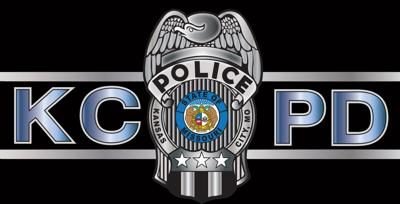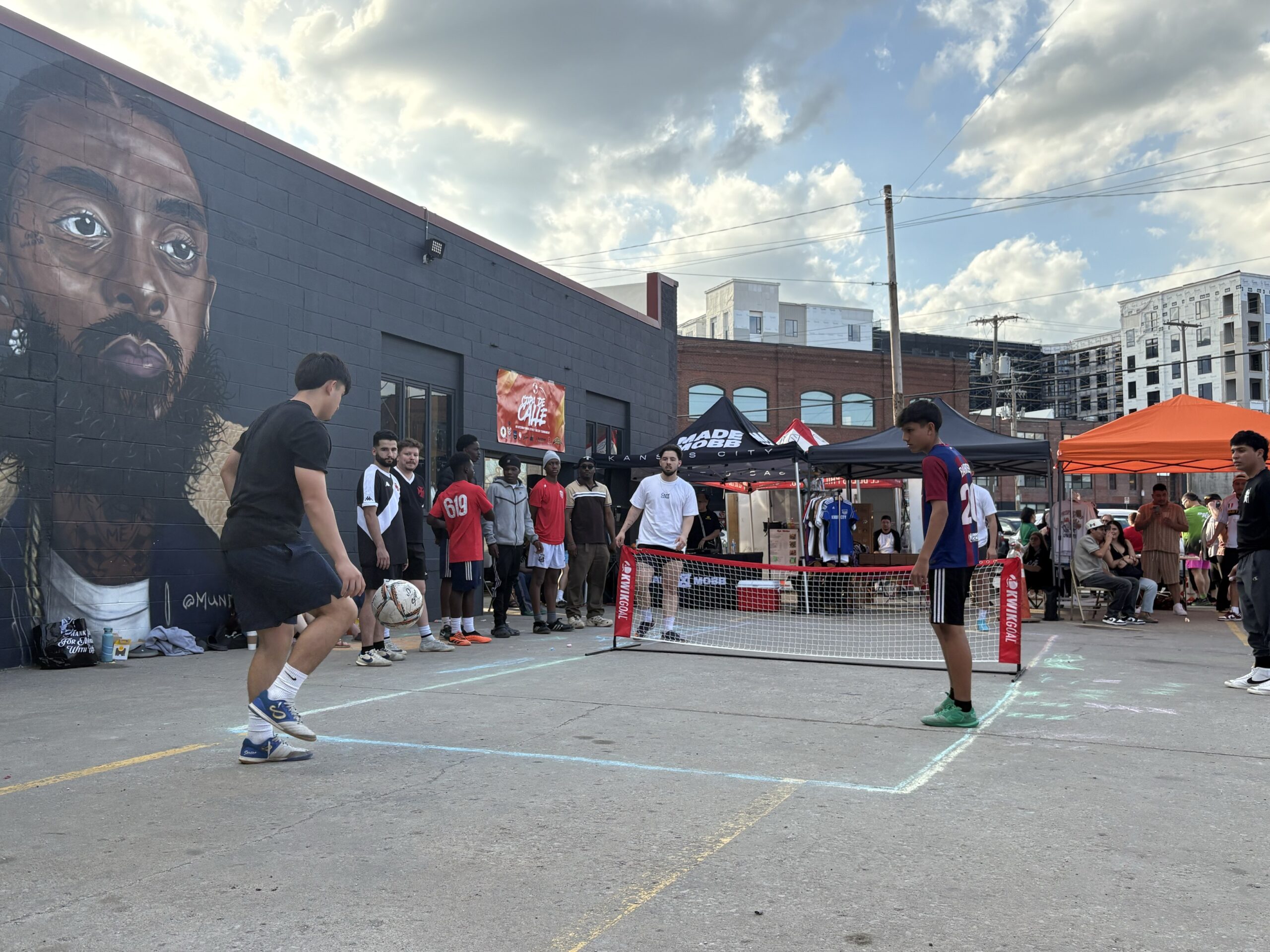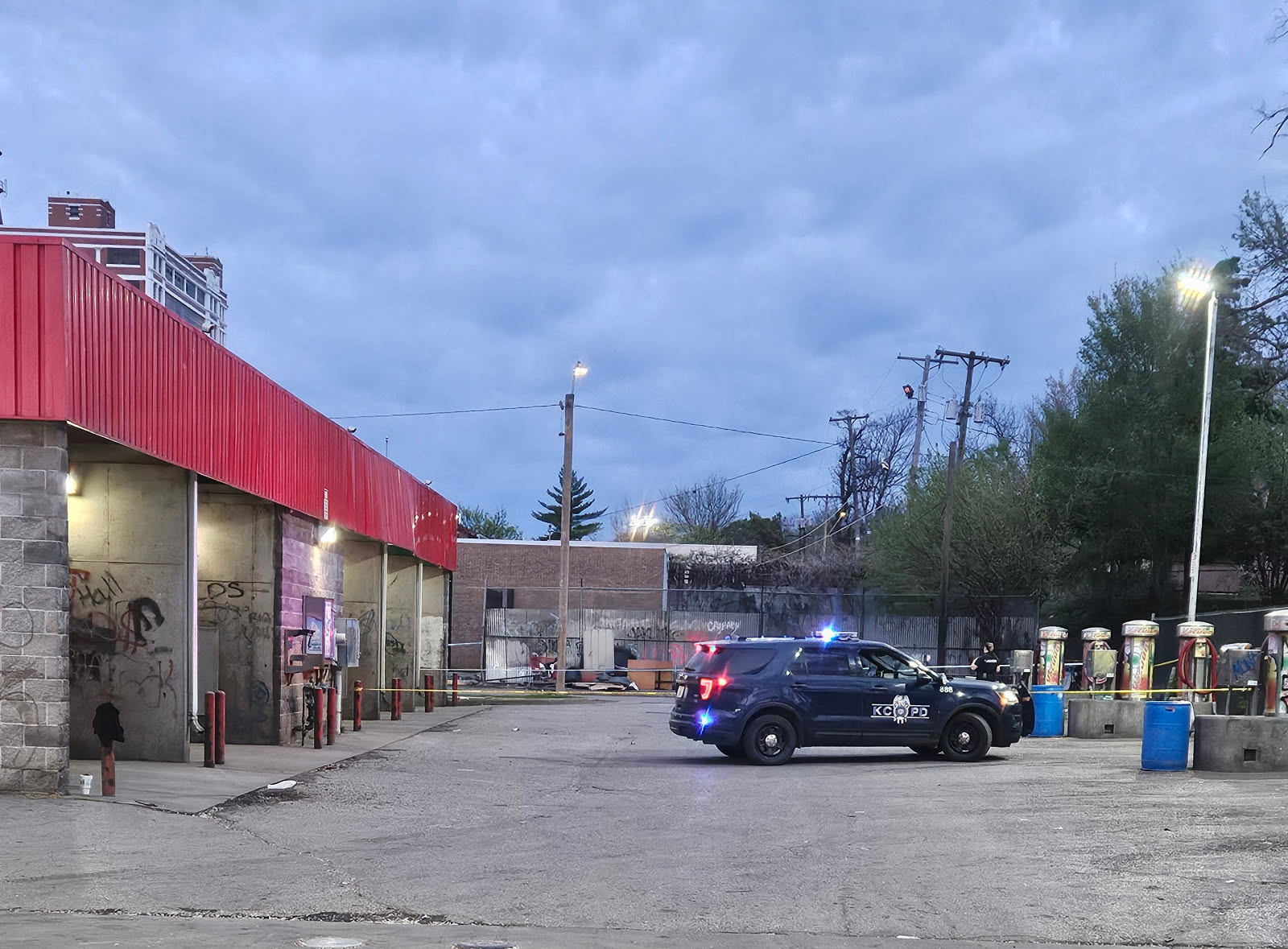
A Kansas City Missouri Police Officer who was critically injured in an Officer Involved Shooting on July 2 near 31st and Van Brunt Blvd has left the hospital today, bound for a rehab center out of state to continue his recovery.
The Officer, when leaving Truman Medical Center (TMC) in an ambulance flashed the thumbs up signal, something his medical team at Truman was overwhelmingly pleased with.
After the initial call went out, a Supervisor Officer left the East Patrol station and drove to the scene according to Major Doug Niemeier, East Patrol’s commanding Officer.
“That supervisor, drove there, drove around all the chaos that was going on, drove right up to him. His partner and another officer put him in the car and he drove straight to the hospital.”
That quick work likely was critical in saving the officer’s life.
According to Dr. Michael Moncure, the first trauma surgeon to see the wounded officer, time was critical in this particular case.
“I would say that your chances are really remote to survive something like this”, Moncure stated. I would say there’s almost a 98 99% chance of dying.”
The initial emergency surgery, according to Dr. John Gianino, the neurosurgeon responsible for saving the officers life, took roughly three to four hours. That surgery included removing part of the officer’s skull that, according to Gianino, was partially in fragments. This removal allowed the officer’s brain room to swell from the injury and keep him from going in to shock.
Officer Doaa El Ashkar was responsible for most of the communication between the Police Department, the Officer’s family and the general public. El Ashkar read a moving letter from the family that expressed deep appreciation to the department, the medical team at Truman, and the outpouring of support from the public for the officer and the department.
“When we first arrived at Truman Medical Center we were told that they call this hospital Truman Miracle Center. Well, we know firsthand the accuracy of this statement.
We have seen miracle upon miracle in the past three weeks at Truman Med. ‘Thank you’ seems not enough for a life, but we would like to thank all the staff at the hospital, from the bottom of our hearts for the care, compassion, dedication to their callings, and everything that was done to make this outcome possible. Every single person, from the women who kept things clean for us to the security personnel who greeted us with smiles each morning, to the administration to the therapists, and to all the doctors and nurses who used their superior professional abilities, we say thank you. May God bless you as you have blessed our family.
And next to the outstanding, men and women in the Kansas City, Missouri Police Department, under the superb leadership of Chief Smith, we owe you, everything. Your kindness, compassion, endless support professionalism and love for us as people is beyond expectations. From the quick thinking actions of the officers at the scene on July 2 to every single act of kindness, which are too numerous to list. We are deeply touched and sincerely thank you so very much. Your compassion has blessed us beyond measure. May God protect you, each and every day as you serve the people of Kansas City. May God bless your families with the goodness that you have shown us.
And finally, to the people of the community for the monetary gifts for the cards for the challenge coins and for the homemade items. Absolutely everything you have done for us has made a huge impact. We have felt your care and compassion, through your many acts of kindness, and to the people near and far, who have prayed. God has heard those prayers and answered.”
Back to that thumbs up signal given by the officer upon his departure? According to Dr. Dustin Neel, Surgical ICU Director for TMC, that was one of the best signs of recovery ever.
“We’re most ecstatic about his thumbs up on the way out,” Neel said. “That means that his brain is able to process the information that he’s been told, allowed to then make a decision, and then react to that decision in a coordinated fashion and so that is remarkable with, with the severity of his injury from the baseline.”
After spending three weeks at Truman, the officer will continue his rehab at an out of state facility designed specifically for brain injury and neurological rehabilitation and recovery.
















